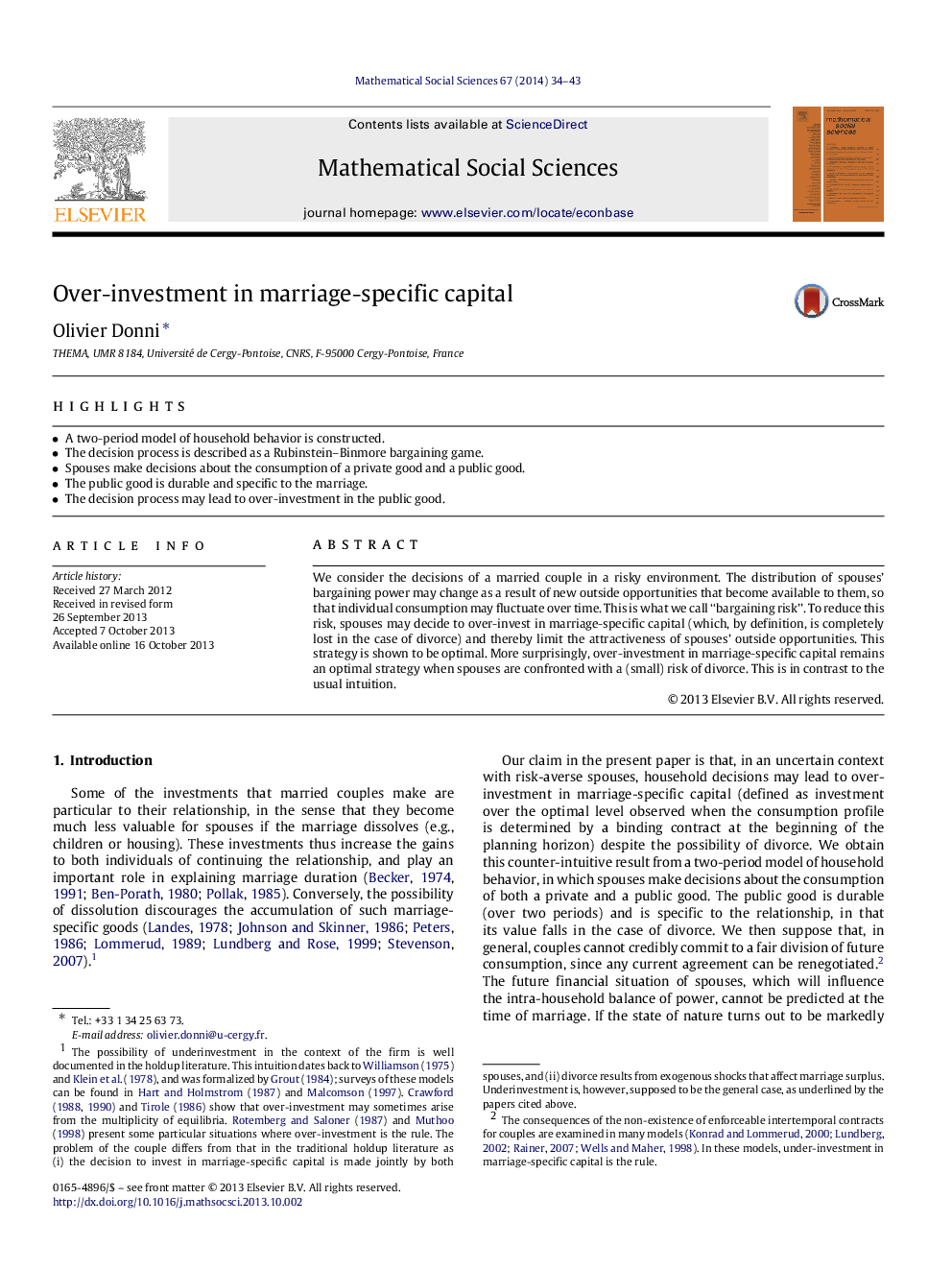| Article ID | Journal | Published Year | Pages | File Type |
|---|---|---|---|---|
| 972622 | Mathematical Social Sciences | 2014 | 10 Pages |
Abstract
We consider the decisions of a married couple in a risky environment. The distribution of spouses' bargaining power may change as a result of new outside opportunities that become available to them, so that individual consumption may fluctuate over time. This is what we call “bargaining risk”. To reduce this risk, spouses may decide to over-invest in marriage-specific capital (which, by definition, is completely lost in the case of divorce) and thereby limit the attractiveness of spouses' outside opportunities. This strategy is shown to be optimal. More surprisingly, over-investment in marriage-specific capital remains an optimal strategy when spouses are confronted with a (small) risk of divorce. This is in contrast to the usual intuition.
Related Topics
Physical Sciences and Engineering
Mathematics
Applied Mathematics
Authors
Olivier Donni,
